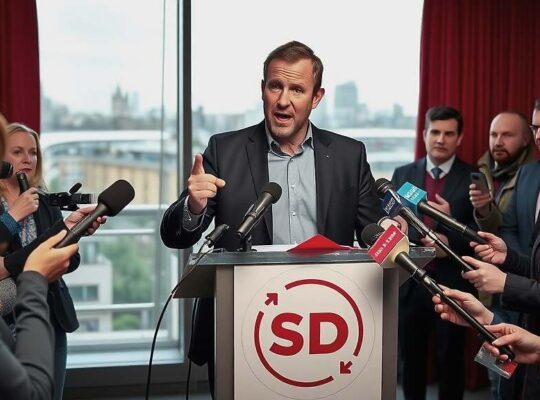A debate regarding potential security guarantees for Ukraine following the end of Russia’s military actions has sparked discussion within Germany’s Christian Democratic Union (CDU). Following recent discussions in the United States, CDU leader Friedrich Merz indicated openness to the possibility of Germany participating in a peacekeeping force with its own soldiers.
Norbert Röttgen, Vice Chairman of the CDU/CSU parliamentary group responsible for foreign policy, stated that the question extends beyond guarantees for Ukraine alone, encompassing a broader European security order focused on preventing future Russian aggression. He emphasized the immediate need to support Ukraine in building its defensive capabilities, noting Germany’s current shortcomings in weaponry, equipment and personnel – specifically referencing a need for approximately 100,000 active soldiers and 200,000 reservists. Röttgen stressed that Germany must rapidly address these deficiencies to credibly participate in a European security arrangement.
Peter Beyer, a member of the Bundestag’s Foreign Affairs Committee and former transatlantic coordinator for the German government, suggested a willingness to consider deploying German soldiers to Ukraine. He cautioned against establishing any “red lines” and stated that Germany should explore all feasible options within its economic capabilities and leadership role, contingent upon the extent of U.S. involvement.
Conversely, CDU foreign policy expert Roderich Kiesewetter warned against an open public debate regarding security guarantees, advocating for a cautious approach until Russia demonstrates a willingness to negotiate. He argued that prematurely disclosing details could benefit the Russian side and emphasized that guarantees should not be offered if they entail territorial concessions from Ukraine, which would violate its constitution. He also underscored the complexity of such an undertaking, citing the need for extensive preparation, training and coordination with existing European defense efforts.
From the Social Democratic Party (SPD), there were signals of support for security guarantees, provided they are pursued in conjunction with the United States. Siemtje Möller, SPD Vice Chairman of the parliamentary group, stated that Ukraine will require robust security assurances following a peace agreement. She emphasized that U.S. participation is essential and that Germany’s contribution can only be discussed once both U.S. engagement and Russian consent are established.
SPD representative Adis Ahmetovic echoed this sentiment, noting that a collaborative effort will be required. He stressed the importance of awaiting clarity regarding U.S. strategy before making any definitive commitments.












